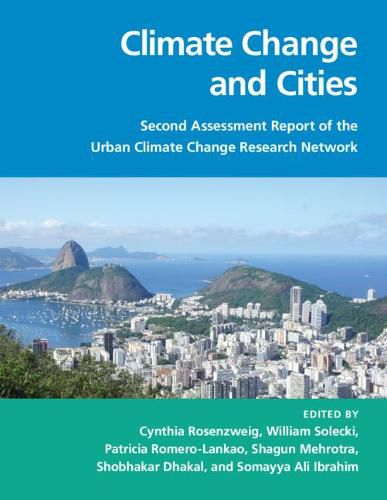Readings Newsletter
Become a Readings Member to make your shopping experience even easier.
Sign in or sign up for free!
You’re not far away from qualifying for FREE standard shipping within Australia
You’ve qualified for FREE standard shipping within Australia
The cart is loading…






The Urban Climate Change Research Network’s Second Assessment Report on Climate Change in Cities (ARC3.2) is the second in a series of global, science-based reports to examine climate risk, adaptation, and mitigation efforts in cities. The book explicitly seeks to explore the implications of changing climatic conditions on critical urban physical and social infrastructure sectors and intersectoral concerns. The primary purpose of ARC3.2 is to inform the development and implementation of effective urban climate change policies, leveraging ongoing and planned investments for populations in cities of developing, emerging, and developed countries. This volume, like its predecessor, will be invaluable for a range of audiences involved with climate change and cities: mayors, city officials and policymakers; urban planners; policymakers charged with developing climate change mitigation and adaptation programs; and a broad spectrum of researchers and advanced students in the environmental sciences.
$9.00 standard shipping within Australia
FREE standard shipping within Australia for orders over $100.00
Express & International shipping calculated at checkout
The Urban Climate Change Research Network’s Second Assessment Report on Climate Change in Cities (ARC3.2) is the second in a series of global, science-based reports to examine climate risk, adaptation, and mitigation efforts in cities. The book explicitly seeks to explore the implications of changing climatic conditions on critical urban physical and social infrastructure sectors and intersectoral concerns. The primary purpose of ARC3.2 is to inform the development and implementation of effective urban climate change policies, leveraging ongoing and planned investments for populations in cities of developing, emerging, and developed countries. This volume, like its predecessor, will be invaluable for a range of audiences involved with climate change and cities: mayors, city officials and policymakers; urban planners; policymakers charged with developing climate change mitigation and adaptation programs; and a broad spectrum of researchers and advanced students in the environmental sciences.